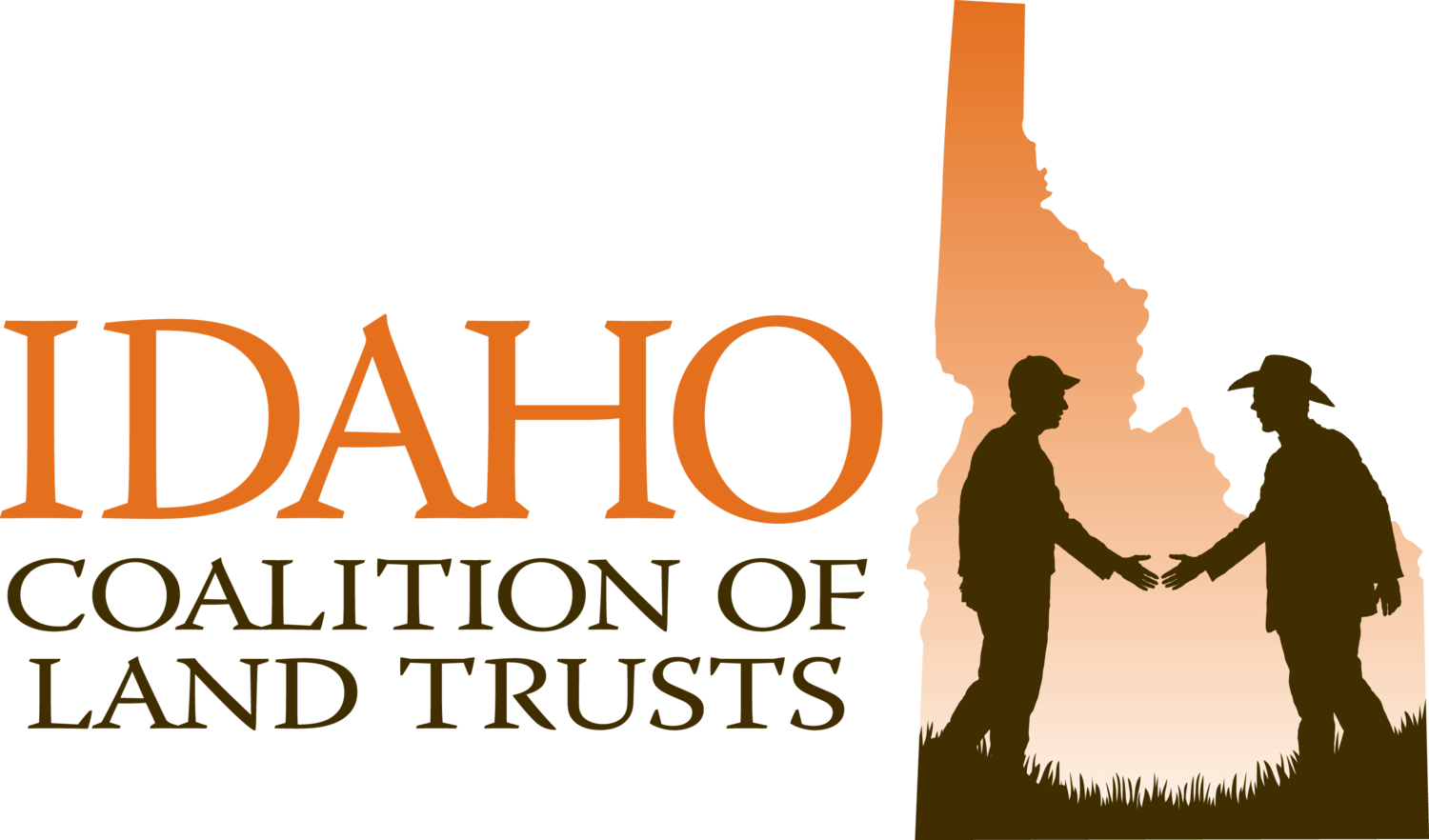More on....What Is A Land Trust
A conservation easement is a land protection agreement that protects private lands from development that would destroy or degrade a property’s scenic, wildlife, agricultural or recreational values.
Land trusts play an important role in working to ensure that as Idaho grows and develops, we retain and maintain the character of our majestic rangeland, the productivity of our agricultural lands, the economics of our working timberlands, and the health of our lakes, streams and wildlife habitat. We believe that to achieve economic growth, expanded employment opportunities and the chance to make a better life for our families we must protect the quality of life that is a foundation of our economy. Land trusts are supported by a great variety of individuals and organizations who share this belief and who share a concern for Idaho’s future when they see subdivisions stand where hay once grew, where cows once grazed, where a barn once stood, where elk once gathered, where upland birds once nested, or where people once walked or hiked.
The nonprofit status of a land trust can help bring a variety of tax benefits to landowners who work with land trusts. Donations of land, easements or monetary gifts may qualify landowners for federal income, estate or gift tax benefits. Land trusts are also flexible and can act quickly in conserving lands.
Land trusts all have some attributes in common, but each land trust in Idaho has its own unique working area, priorities, mission and goals.
For example, some of the land trusts in Idaho work with landowners in a more narrowly defined geographical area, and have formed close cooperative relationships with local governments, Tribes, state and federal agencies and other organizations in specific counties, valleys and river basins in Idaho (e.g. Heart of the Rockies Initiative, Inland Northwest Land Trust, Land Trust of the Treasure Valley, Lemhi Regional Land Trust, Palouse Land Trust, Payette Land Trust, Sagebrush Steppe Land Trust, Southern Idaho Land Trust, Teton Regional Land Trust, and Wood River Land Trust). The Kaniksu Land Trust works with landowners in just one Idaho county, Bonner County. The Wilderness Land Trust works with private landowners whose property is within federally-designated Wilderness Areas. Other land trusts in Idaho protect lands critical to specific wildlife species, such as the Rocky Mountain Elk Foundation (elk) and The Vital Ground Foundation (grizzly bears). In addition, some local and state government sponsored entities in the state are involved in land conservation work e.g. City of Boise’s Foothills and Open Space Program and Blaine County Land, Water & Wildlife Program. The Nature Conservancy is an international organization with a focus on protecting Idaho’s biodiversity. Two national organizations - The Trust for Public Land and The Conservation Fund - protect places with significant land, water and open space resources that matter to local Idaho communities.
All land trusts in Idaho have a common thread running through them, and that thread is a dedication to private land conservation.
